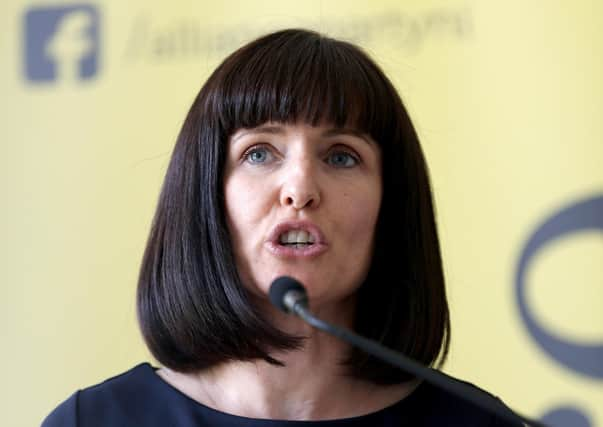Contaminated blood patients’ battle for payment increase ‘unacceptable’: Bradshaw


Paula Bradshaw was commenting after Health Minister Robin Swann said the annual payments would be brought in to line with those in England.
“It is unacceptable that the process has taken so long and that victims have had to go through so much. It should not take endless meetings with ministers, constant trips to Stormont, threats of judicial reviews and numerous media appearances to get fair compensation for victims,” the Alliance health spokesperson said yesterday.
Advertisement
Hide AdAdvertisement
Hide Ad“While I welcome that finally the victims in this case are receiving the recognition that their suffering deserves, there are still other victims waiting and continuing to be further victimised by unnecessarily slow political responses.
“I warmly congratulate those who have given so much to the campaign to deliver today’s outcome. Let us hope that today’s news heralds a series of similar announcements ensuring that victims are given the priority and respect they need and deserve,” Ms Bradshaw added.
The increased annual payments range from £18,745 to just under £45,000, depending on diagnosis, and bring Northern Ireland’s rates in to line with England, where payments were increased significantly in April 2019.
The payments will be made to people on the Northern Ireland Infected Blood Payment Scheme, who were diagnosed with Hepatitis C or HIV after receiving NHS-supplied infected blood or blood products, and will continue at the higher rate into future years, the Department of Health has confirmed.
Advertisement
Hide AdAdvertisement
Hide AdThe decision comes after Families and Friends of Haemophilia NI wrote to Prime Minister Boris Johnson to complain that victims in Northern Ireland were not being treated equally to those in the rest of the UK.